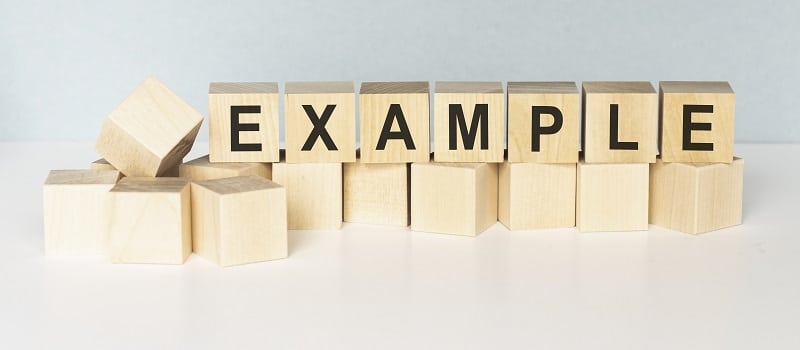The word “respectively” is one of the commonly used words in the English language, so there is no surprise that it has been misused a lot of times in sentences. But, you do not want to be a part of the many who misuse words because they do not have a clear understanding of them. So, it is okay if you are asking, how we should use the word “respectively” when writing.
The word “respectively” is an adverb used to clarify the relationships between several words in a sentence. “Respectively” means in the order mentioned and separately. An example of how to use the word “respectively” is the capital city of China and Russia is Beijing and Moscow, respectively.
Although it looks very easy, there are some complications when using the word. Well, we have got you covered. In this article, we will talk about everything you need to know about this word. This is to ensure you know how to use this word correctly.
What Does The Word “Respectively” Mean?
While it is essential to have a full understanding of the meaning of a word before deciding to use the word. A lot of people are ignorant of how important it is and so they end up misusing words and not communicating accurately.
For us to avoid misusing words and not communicating accurately, we will dive into the meaning, the origin, the nature, the synonyms, and the antonyms of the word “respectively.” This is to ensure you have a complete understanding of the word.
So, what does the word “respectively” mean, and what is its origin?
The word “respectively” is borrowed from the Medieval Latin word “respectivus,” (means to have regard for) gotten from the Latin word “respectus” (the past participle of respicere).

Right now, we will take a deep look into the meaning of the word “respectively.”
In a relative sense, when comparing, the word “respectively” is used to denote that the items listed in both lists correspond to each other in the exact order they are given. It also denotes the sequential arrangement of things.
It refers to a way of arrangement that relates to each separate thing that has been mentioned earlier. Another way to put it is singly in the order previously mentioned or designated.
The word “respectively” means individually or separately and in an arranged order that has been mentioned previously.
From the different meanings listed above, you will notice some things that are constantly emphasized: there is a list of arranged objects usually two or more and there is a reference to the first list and the order and arrangement of the first list are maintained in the second.
Next, we will look into the nature of the word “respectively,” the function it performs in a sentence.
As you know, an adverb is a word that expresses a relation of time, place, circumstances, cause, degree, or manner. “Respectively” plays the role of an adverb in a sentence, meaning it modifies and qualifies a verb, an adjective, or another verb. The presence of “ly” at the end of the word makes it an adverb, without it the word is an adjective.
Some of the synonyms of the word “respectively” are distributively, sequentially, singly, independently, corresponding, approximately, discreetly, in-particular, severally, each, and individually. The antonyms are altogether, aggregately, together, generally, jointly, and collectively.
Having this knowledge in mind makes it very easy to understand how to properly use a word in a sentence.
How To Properly Use “Respectively” In A Sentence
Now that you clearly understand the meaning, origin, nature, synonyms, and antonyms of the word “respectively,” we will dive into how to properly use the word in a sentence.
We use the word “respectively” when we want to emphasize the relationship between two or more pairs of items in two parallel lists, meaning the two parallel lists usually contain the same number of items.
So, you cannot use the word “respectively” when there are no parallel lists or when the parallel lists do not contain an equal amount of items. Therefore the use of the word is limited, a lot of people do not know this and they end up misusing it.

Another thing you must know is that you must use the word only when there is a direct one-to-one relationship between the items in the two parallel lists.
You need to know that in the modern standard of written English, the word “respectively” is used at the end of any sentence, and it is preceded by a comma. If you place the word in any other part of the sentence, you will make the sentence much more difficult to understand.
You can also use the word to relate a list of parameters to some value, e.g. numeric data, the list of values follow the same order given for the list of parameters. The second list corresponds exactly with the arrangement or order of the first list.
Here are some rules you are advised to follow:
- Ensure you only use the word when it is necessary, if you do not have to use the word in a sentence, avoid it, it only complicates and makes your writing difficult to understand.
- If you must use the word, it has to be only when you are combining a list of things you have stated earlier with a list of items you will state at the end.
- When using the word, you must always place a comma at the end of the sentence but preceding the word “respectively.”
Illustrative Examples on how to use the word “Respectively”
We have explained all you need to know about the proper usage of the word “respectively”. But for better clarity, we will take a look at some examples.
Incorrect
- I hope you connected all four wires to the fuse and diode respectively
- Respectively, Alex, Michael, and John came first, second, and third place in the competition.
- The width and length of the rectangle are respectively 5 inches and 9 inches, can you find the area?
- The average estimated precipitation in Mumbai for the next couple of years will be 30.6 inches, 40.5 inches, and 42.9 inches, respectively.
- The bass guitar, keyboard, and violins were purchased from Yamaha and Behringer stores, respectively.
- You can only use modified diesel and petrol engines respectively when you blend it with conventional diesel and petrol.
- Sarah and Veronica who are respectively David’s aunt and sister expanded my insights into womanhood.
- Gastric and duodenal ulcers, respectively tend to develop along different pathways with high and low gastric acidity.
- Respectively, James and Burton were born in London and they served apprenticeships as goldsmith and fashion designer in Canterbury.
- Daniel and David bought soda and juice from the store respectively.
Correct
- I hope you connected the red wire, the blue wire, the green wire, and the yellow wire to the diode, cathode, fuse, and capacitor, respectively.
- The first, second, and third place in the competition went to Alex, Michael, and John, respectively.
- The width and length of the rectangle are 5 inches and 9 inches, respectively. Can you find the area?
- The average estimated precipitation in Mumbai for the next three years will be 30.6 inches, 40.5 inches, and 42.9 inches, respectively.
- The bass guitar, keyboard, and violins were purchased from Yamaha, Behringer, and Electro-Voice stores, respectively.
- You can only use modified diesel and petrol engines when you blend them with conventional diesel and petrol, respectively.
- My insight into womanhood was expanded by Sarah and Veronica who are David’s aunt and sister respectively.
- Gastric and duodenal ulcers tend to develop along different pathways with high and low gastric acidity, respectively.
- James and Burton were born in London and they served apprenticeships as goldsmith and fashion designer in Canterbury, respectively.
- David and Daniel bought soda and juice from the store, respectively.

Some elements to notice in the examples given above:
- In example 1, there are four items in the first list and two items in the second, and in example 5 there are three items in the first list and two in the second. You cannot use “respectively” because the two parallel lists must contain the same amount of items.
- In examples 2, and 9, the word “respectively” is placed at the beginning of the sentence, it must be at the end, which is the accepted standard of writing in modern English.
- In examples 3, 5, 6, 7, and 8, the word “respectively” is placed in the middle of the sentence which is making it difficult to understand. It must be at the end of the two parallel lists.
- In example 4, there is no specific amount of items in the first list (a couple of years does not state the exact amount of years). You need to be specific with the amount to use the word “respectively” when combining two parallel lists.
- While it looks all correct in example 10, there is no comma before the word “respectively.”
Final Thoughts
There is no reason for you to be confused when using the word “respectively” in a sentence. Even if there were some misunderstandings before, we have cleared it all up in this article.
So, now you can use the word with confidence next time you are writing and it is fitting to convey your message. Enjoy!
Shawn Manaher is the founder and CEO of The Content Authority. He’s one part content manager, one part writing ninja organizer, and two parts leader of top content creators. You don’t even want to know what he calls pancakes.

